OUR PRODUCTS
PCD DIES
PCD is a unique material that balances performance, cost, and surface finish. While natural diamonds and tungsten carbide are functional in some applications, PCD is an engineered material that helps diversify product offerings and lower overall die costs.
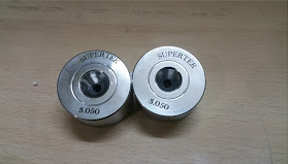 |
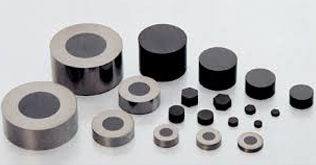 |
Polycrystalline diamond (PCD) is the workhorse of the wire industry. A wide variety of wire is drawn using PCD. Each step of the manufacture is done at the Supertek Dies facility in Delhi . The Supertek Die PCD inserts are critical component that enables long life, accurate geometries that provide predictable drawing conditions, and a high polish delivering a superior surface finish on the wire. PCD dies are available in a wide range of hole sizes ranging from (0.100mm– 12. mm). Pricing is dependent on the PCD insert used in the die.
Factors to consider when specifying a die are:
- PCD insert size
- PCD grain size
- Hole geometry
- Casing size
|
||||||||||||||||||||||||||||||||||||||||||||||||||||||||||||||||||||||||||||||||||||||||||||||||||||||||||||||||||||||||||||||||||||||||||||
|
SUPERTEKsupplies tungsten carbide drawing nibs for the full range of wire drawing application: high-carbon wire, Low -carbon, bead wire, welding wire, stainless wire , spring wire, copper , aluminium alloy & aluminium. We assist you in achieving the most effective performances by working together from the earliest stage of project planning through to start-up and after support of your operation. MATERIAL
Supertek long experience and commitment to research and development enables us to offer a range of carbide grades to meet the drawing requirements for all applications. GEOMETRIESBack-relief angle and bearing geometry are the key factors in achieving rapid die finishing and best die performance. In particular for the smallest bores, drawing and exit cones must be perfectly co-axial in order to achieve an accurate final geometry. To meet these requirements Bremer has developed a unique manufacturing process |
||||||||||||||||||||||||||||||||||||||||||||||||||||||||||||||||||||||||||||||||||||||||||||||||||||||||||||||||||||||||||||||||||||||||||||
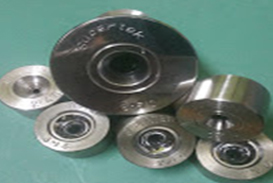 |
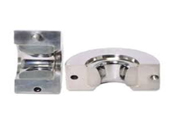 |
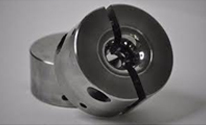 |
| ROUND DIES | SPLIT DIES | SHAPED DIES |
STRANDING/BUNCHING DIES
- · The Stranding dies is widely used for bunching, compacting and stranding the wire, which is used
- · in cable industry.
- · We offer a very economical route to get good quality cables with low cost. Our team made these
- · dies according to customer's needs & drawing.
SPLIT DIES
- · The main use of this product is in bunching and stranding operations where frequent die changes occur.
- · The main benefit of the split die is:
- · * Replace a die in production with a new die without having to cut the wires to remove the die.
- · * Improving working efficiency and reduse the down time.
- · * Reduced scrap being generated relative to re-stringing the cable entirely.
Applications
Ideal for most ferrous wires, large diameters and applications where corrosive wear is the primary cause of die failure.
Typical Markets
Carbon steel wire of all sizes, tire cord and welding wire

